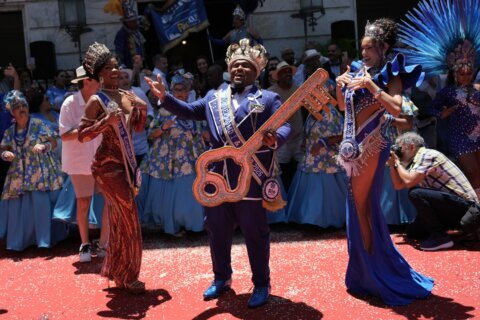
If you become debilitated or die, are there plans for how bills would get paid or for how the right people can find all the money or goods you’ve left behind?
A D.C.-based consumer’s group recommends people create paper trails for their heirs.
“We’ve spoken to several estate planning attorneys and they all say the same thing — that this is a huge problem,” said Kevin Brasler, executive editor at Washington Consumers’ Checkbook.
“People pass away and their heirs don’t know where to look to find what assets they have,” he said.
Even without help, people are bound to track down everything eventually. Checkbook notes that the website MissingMoney.com might help you identify accounts.
“It just takes more work. It takes more detective work, it costs more money (if you hire professionals to do the search), takes more time. And in some cases, there’s a big fear that assets just get lost forever because heirs don’t know about them,” Brasler said.
It doesn’t have to be complicated.
“The way to solve that is to have a paper trail, just a simple list of what you have,” Brasler said. “Even if you don’t have a lot of assets it makes sense to leave behind a paper trail for folks, so that it’s just a lot less work for them to sort out your affairs.”
Leave behind a list of every institution that you have for banking or investments, any financial accounts, retirement accounts and locations of any investments that you might have that people might not know about. Also, detail locations where people can find legal documents, business documents, vehicle titles, adoption, decrees, divorce decrees, those types of things, he said.
Brasler believes everyone should have a simple will even if for no other reason than to designate a health care surrogate if you can’t make decisions for yourself.
But, you don’t necessarily have to go through the process of creating a will to assure someone you’ve designated has access to your money.
Howard University School of Law professor Keeva Terry explains how a payable on death (POD) bank account is essentially an account with a named beneficiary.
“As we’ve seen recently during this pandemic, people can pass away unexpectedly, and there can be lots of expenses for family members to cover during that time,” said Howard University student Christy Bonner, who helped create public service announcements on the issue. “Having a POD account could greatly assist a person’s loved ones in covering those unexpected costs without having to wait for the funds to pass through the probate court system, possibly avoiding further financial hardships after a family tragedy.”
You can find advice for what to include on your financial roadmap and detailed strategies for tracking down assets of a deceased family member on the Consumers Checkbook website.
Consumers’ Checkbook/Center for the Study of Services is an independent, nonprofit consumer organization founded in 1974. It has been an innovator in providing information to help consumers make smarter choices for more than 40 years.









